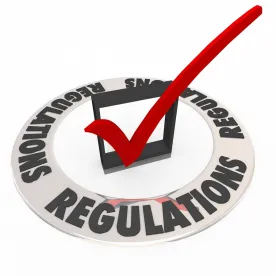Over the weekend, the California legislature passed AB249, the California DISCLOSE Act, a controversial set of campaign finance disclosure rules that have been years in the making. The law now awaits Gov. Jerry Brown’s approval. The law’s proponents have argued that it is necessary in order to provide voters with complete information about the sponsors of advertising. Its opponents have called prior versions of the bill confusing. Regardless, assuming the law is not vetoed, it will make some key changes to the California Political Reform Act of which anyone active in California political advertising and campaign finance should be aware.
First, the law requires that almost all advertising carry some form of “paid for by” statement, though it does so in a complicated manner. Under the prior law, it was not entirely clear where and how sponsorship information was to be disclosed, especially where electronic advertising was concerned. Under the DISCLOSE Act, depending on the type of electronic advertising, it usually must include sponsorship information, in the form of a link that reads, “Who funded this ad?,” a direct link to sponsor information, or include the sponsor information in the ad itself. The law also establishes special rules for disclosures in social media, text messaging, standard websites, and other electronic communications. The law maintains the exceptions to disclosure for communications from an organization to its members, and for communications where including the disclosure might be difficult because of the item on which the communication appears or because of technological limitations. However, these various rules are spread across numerous provisions of the Political Reform Act — tracing the requirements through the law is a time-consuming task.
Second, in what will probably be the change most noticeable to the public, the law would make the on-advertisement disclosure of an ad’s sponsor and top donors much more prominent for ballot measure ads and candidate ads funded by outside groups. While much of this information is required already, it has often been buried in fine print and made hard to read by using all uppercase letters. Under the new law, these advertisements generally must include the names of those three persons who have each contributed the most to the sponsoring committee in an amount over $50,000 in the prior year (if there are any such contributors), as well as the “paid for by” information. On television and other video ads, sponsor and donor names must appear in a black box, usually taking up 1/3 of the screen for at least five seconds at the start or finish of the ad, with each name on its own line, using standard capitalization. Large donors to ballot measures and outside committees supporting candidates should consider that their names would be prominently placed on the recipient’s advertising.
Third, the law expands and clarifies the state’s rules for reporting earmarked contributions, with the goal of preventing committees from burying their donors under layers of organizations, though there is a key loophole here. Under the DISCLOSE Act, if contributions are given to one committee formed to support a candidate or ballot measure and earmarked for that candidate or ballot measure, and the recipient gives them to a second committee formed to support that candidate or measure, the second committee must report as the donor not the first committee but the original source of the earmarked money. The apparent goal behind this requirement is best illustrated by example. Assume a trade group solicits contributions to a committee named “Businesses Against Prop 1,” and ABC Corp. and The Smith Co. each contribute over $50,000, knowing the money will then go to the broader “No on 1” committee. Under the old rules, the donor disclosed on “No on 1” ads may have been “Businesses Against Prop 1.” Under the DISCLOSE Act, the ad may need to display “ABC Corp.” and “The Smith Co.” However, there is also a new loophole built into the law for earmarked contributions in the form of dues or assessments to a membership organization or its sponsored committee by its members that are earmarked but are less than $500/year per donor.
This is only a sampling of the changes the DISCLOSE Act makes to the state’s disclosure system — the reality is that the changes are too detailed and complex to be captured in a single blog post. The main takeaway for any organization planning to contribute to, or place advertisements in, California elections moving forward should carefully consider the changes in the law, and think about consulting with counsel on how those changes might impact their activity.
Unless vetoed, these changes take effect on January 1, 2018, in time for the November 2018 election that will feature an open gubernatorial race as well as legislative races and ballot measures.




 />i
/>i

